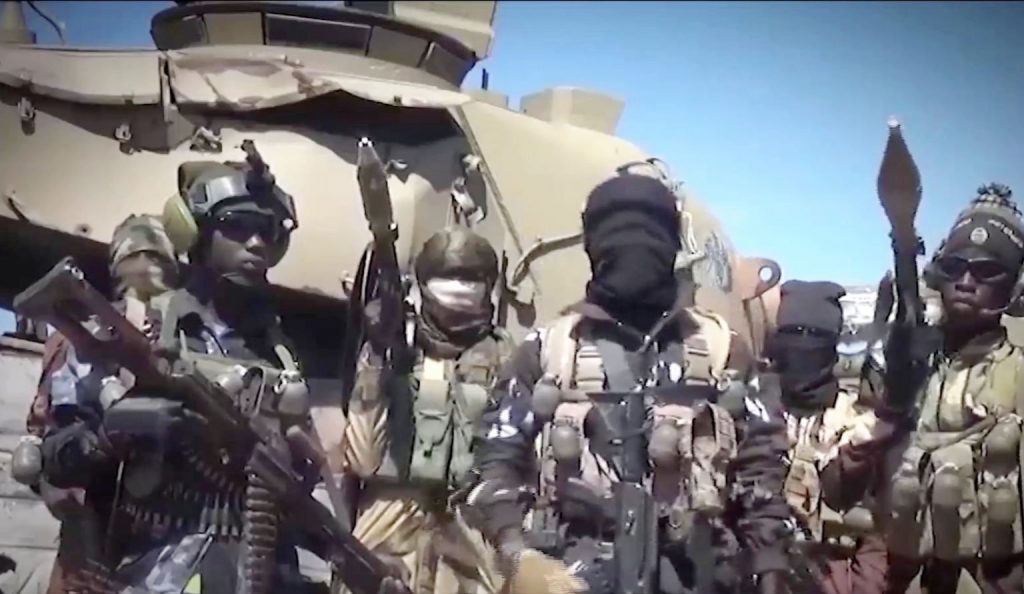West Africa, once seen as a beacon of stability in a volatile region, is now grappling with an escalating security crisis that threatens the very fabric of its societies. The recent report by SBM Intelligence paints a grim picture of the security landscape across Nigeria and its neighbouring countries, highlighting the urgent need for a more coordinated and comprehensive approach to address these growing threats.
The security challenges in Nigeria are multifaceted, with each region facing its own set of crises. In the North Central region, persistent banditry and violent protests underscore the state’s inability to manage internal conflicts effectively. The killing of six suspected bandits in Benue State by the Joint Task Force (JTF) demonstrates the government’s proactive stance.
Yet, it also raises concerns about the potential for excessive force and civilian casualties. Similarly, the tragic loss of lives during a protest in Niger State, where a stray bullet claimed the life of a protester, highlights the need for better management of civil unrest and more stringent rules of engagement for law enforcement.
SBM Intelligence posits that the resurgence of terrorist activities in the Northeast, as evidenced by the recent bombing in Kawuri village, Borno State, is a stark reminder of the persistent threat posed by extremist groups like Boko Haram and ISWAP. These attacks not only disrupt communities but also erode trust in government security measures, particularly when local healthcare facilities are overwhelmed by the influx of victims. The imposition of curfews in Yobe State further illustrates the region’s instability, with authorities resorting to measures that often exacerbate social tensions rather than alleviate them.
The Northwest is similarly besieged by violence, with the abduction of traditional leaders and their families becoming an increasingly common tactic employed by insurgents. This strategy aims to destabilise rural areas, erode trust in traditional institutions, and create power vacuums that further undermine the state’s authority.
The protests in Kaduna State, which resulted in multiple deaths and injuries, reflect a growing frustration among citizens, driven by deep-seated issues such as hunger, poverty, and inequality. The government’s swift imposition of curfews in response to these protests raises questions about its commitment to democratic rights and its ability to engage constructively with its citizens.
The Southeast is also facing significant security challenges, with the increasing audacity of criminal elements targeting both civilians and law enforcement officers. The recent attack on police officers in Imo State, likely perpetrated by IPOB factions, underscores the growing threat posed by separatist movements in the region.
This, coupled with the pervasive insecurity along critical highways and the frequent resort to vigilante justice, further destabilises the region and stifles economic activity.
Maritime insecurity is another pressing issue, particularly in the South-South region, where sea pirates continue to terrorise travellers along Nigeria’s waterways. The recent attack on a passenger boat from Port Harcourt to Bonny highlights the increasing boldness of these criminal groups, who operate with apparent impunity, undermining confidence in vital maritime routes and threatening the region’s economic stability.
The situation in Nigeria is not isolated but rather a reflection of broader security challenges across West Africa. In Benin, the activities of JNIM militants in the National Park signal the spread of extremism into new territories, with implications for the region’s stability.
The ongoing conflict in Mali, exacerbated by the involvement of external actors like Wagner forces and Western private military companies, adds another layer of complexity to the region’s security dynamics. The influx of displaced persons from Nigeria into Niger further complicates the situation, as bandits and insurgents exploit these movements to bolster their ranks and expand their operations across borders.
Finally, the security crisis in West Africa demands a comprehensive and coordinated response that goes beyond military intervention. Addressing the root causes of violence, such as poverty, inequality, and lack of economic opportunities, is crucial for building lasting stability in the region.
Governments must engage in meaningful dialogue with their citizens, invest in development and infrastructure, and strengthen the capacity of local institutions to manage conflicts and promote social cohesion. Without such measures, the cycle of violence and instability is likely to continue, with devastating consequences for the region and its people.

